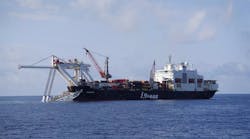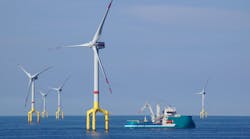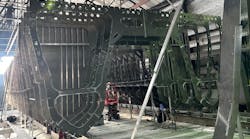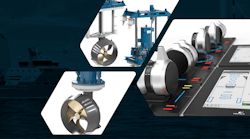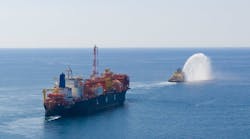Offshore staff
OSLO, Norway – A joint development project between DNV GL, Statoil, and Farstad Shipping has shown that annual fuel bills for offshore supply vessels (OSVs) can be reduced by up to €21,000 ($23,871) by running the vessels at optimal trim.
The partners conducted a comparative study in theNorth Sea to identify potential energy savings through applying DNV GL’s trim optimization tool ECO Assistant on a platform supply vessel (PSV).
“Because of its bow design and relatively flat transom stern this PSV design proved to be sensitive to changes in trim,” said Petter Andersen, principal consultant for Fleet Performance Management at DNV GL – Maritime.
“We were excited to see the results demonstrated that trim optimization can help a modern PSV save significant amounts of fuel, without affecting its normal operation.”
The six-month study assessed operations at theFAR SUN and its sister ship FAR SYGNA, both chartered by Statoil for service offshore southwest Norway.
On both vessels an automated onboard data collection system compiled information concerning the required power, trim and fuel consumption which was relayed to DNV GL and analyzed using the ECO Insight performance management system.
Results revealed that by using ECO Assistant, theFAR SUN consumed on average 4.3% less fuel than FAR SYGNA when operating between 4 and 14 knots. The greatest savings - more than 5% - came when the vessel was operating at speeds of more than 7 knots.
ECO Assistant contains a trim-power model, based on ship data and drawings that incorporate seven speeds, seven drafts, and seven trim conditions. The trim model includes speed-power and fuel oil consumption curves for the full speed range of the vessel, enabling accurate predictions of additional fuel consumption due to extra cargo or ballast, DNV GL said.
In a separate development Statoil has awarded DNV GL a master service agreement.
This covers studies related to safety, platform technology, structural re-analysis, and pipeline technology.
In addition, DNV GL will provide hull and structural inspection services, competent control of complex lifting equipment, and software, maintenance and services for IT delivery.
06/07/2016
Share your news withOffshore at [email protected]
